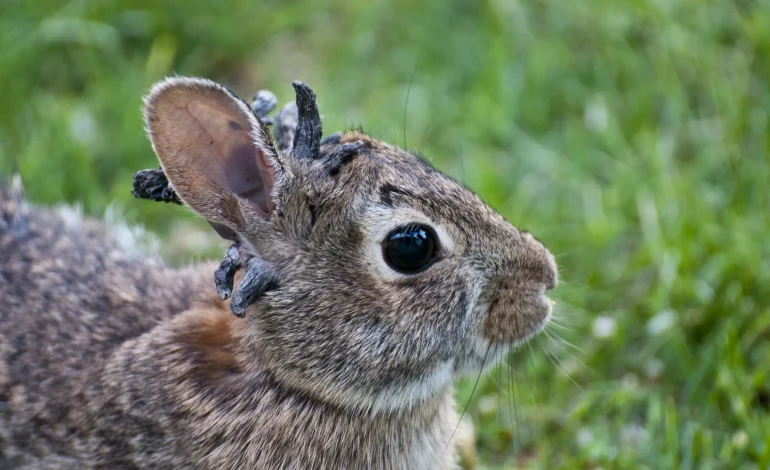‘Tentacle Bunnies’ in Colorado Aren’t Mutants — But Wildlife Officials Say Keep Your Distance

Something strange is hopping around Fort Collins, and locals are freaking out. Wild rabbits have been spotted sporting creepy black, spike-like growths around their mouths and faces — leading to social media nicknames like “tentacle rabbits” and comparisons to zombie creatures from The Last of Us.
The reality is less sci-fi, though still unsettling. According to Colorado Parks and Wildlife (CPW), the critters are almost certainly infected with Shope papillomavirus — a disease that’s been around for decades and is fairly common in the state’s wild cottontail population.
“It’s not harmful to people or most pets, but it does look weird,” said CPW spokesperson Kara Van Hoose.
The virus, spread by biting insects like ticks and mosquitoes, can cause wart-like or horn-like tumors, sometimes resembling black toothpicks jutting from a rabbit’s face.
Since a photo hit local news last Friday, CPW has had about a dozen reports — though it’s likely the same infected rabbits are being spotted over and over. The condition usually clears on its own, and wildlife officials only worry if the growths block the animal’s eyes or make eating impossible.
Still, CPW says the rule is simple: don’t touch. Keep pets away, and leave the infected rabbits alone. While Shope papillomavirus doesn’t spread to humans, domestic rabbits can get it — and in pets, the disease can be more serious, even cancerous.
The virus may even be the origin of the jackalope myth — those legendary horned rabbits — and helped scientists understand how viruses can cause cancer, paving the way for vaccines like the one for HPV.
For now, the “tentacle bunnies” are more of a curiosity than a crisis. As Van Hoose put it:
“Nature is metal — and sometimes it looks a little freaky.”
With input from Newsweek, the New York Times, and Axios.









The latest news in your social feeds
Subscribe to our social media platforms to stay tuned